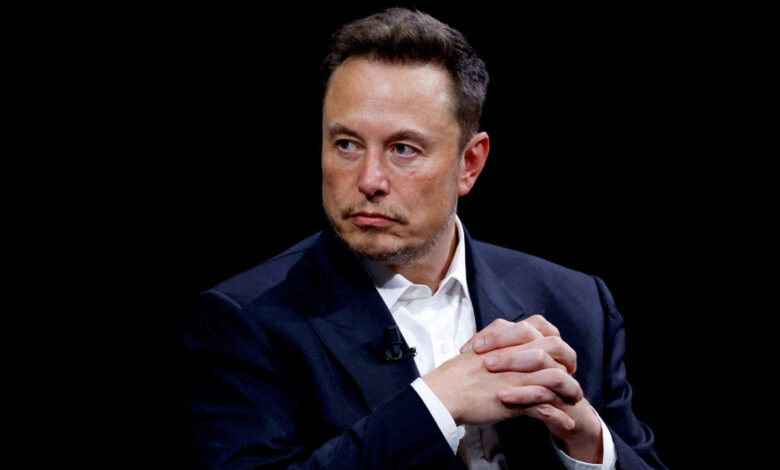Voiding Elon Musk’s $56 billion Tesla pay is a ‘wake-up call’ for directors at all companies

[ad_1]
A decision by a Delaware judge to throw out Elon Musk’s $56 billion Tesla (TSLA) pay package is a threat to the wealth of the world’s richest man. It also could alter the way CEO compensation is decided at companies across America.
“It’s a big deal,” said Cornell University visiting lecturer Brian Dunn, who noted this was the first case ever to overturn a board’s decision on compensation.
The decision from Delaware Chancellor Kathaleen McCormick is “a wake-up call for all directors on the importance of arm’s-length negotiations on CEO pay.”
What McCormick found is that Tesla’s directors had breached their fiduciary duty when they awarded Musk the largest compensation opportunity ever granted to a public company executive.
Why? Because of “extensive ties” between the people negotiating the pay package and a lack of public disclosure about Musk’s relationships with those who approved the deal.
“Put simply, neither the Compensation Committee nor the Board acted in the best interests of the Company when negotiating Musk’s compensation plan. In fact, there is barely any evidence of negotiations at all,” McCormick wrote.
The ruling will reverberate across the business world as other highly paid executives and directors watch the legal conflict unfold, according to analysts and experts.
“I think that this will make directors wary of offering big pay packages to make the CEO happy,” added Dunn, who is an expert on executive compensation. “Do I honestly think it will lower pay CEO pay overall, no, but I do think it will reign in the extremes of which Tesla was not alone.”
The shareholders’ attorney, Greg Varallo, said when Musk’s compensation plan was reached in 2018 it was around 33 times larger than the largest pay package in history, which was Musk’s prior compensation deal reached in 2014.
“It was so large that it single handedly skewed the compensation data,” Varallo said. “This idea that all of a sudden a billion dollars is now conceivable, is due entirely to this package. If you erase this package by rescinding it…my guess is the comparability data begins to deflate.”
Musk’s compensation plan was crafted to pay out in 12 separate tranches of Tesla stock options, but only in the event that the company achieved a series of $50 billion market cap increases, coupled with either revenue or adjusted EBITDA targets over four consecutive quarters.
The performance-based compensation — which was restricted by a lock up period of five years and capped at $55.8 billion — was tied to the value of Tesla’s outstanding shares as of January 21, 2018.
For each benchmark fulfilled, Musk was entitled to 1% of Tesla’s 2018 value.
For now, the rescinded compensation arrangement leaves Musk with no access to the $55.8 billion. However, at the time of the court’s ruling, the Tesla CEO had neither exercised nor sought distribution of those shares.
“The court’s hard work will redound directly to the benefit of Tesla investors, who will see the dilution from this gargantuan pay package erased,” Varallo said. The original lawsuit arguing board members breached their fiduciary duties was filed by shareholder Richard Tornetta.
Tesla’s board could appeal McCormick’s decision to the Delaware Supreme Court, or strike up a new compensation plan that complies with McCormick’s decision. Varallo said he expects the defendants to appeal.
Dan Ives, an analyst at Wedbush, said Wall Street is monitoring how Tesla’s board will react.
Tesla stock fell 2.2% on Wednesday amid a broader market sell-off; so far this year, the stock has dropped 24%.
If the defendants do appeal, the Delaware Supreme Court will likely review whether McCormick correctly characterized Musk as a controlling shareholder in the compensation transaction, according to University of Virginia Law professor Michal Barzuza.
At the time of the accord Musk owned a 21.9% interest in the EV manufacturer.
“How exactly they define controlling shareholder, that’s more complicated, and there are not that many cases about it,” Barzuza said.
The issue is a critical component of McCormick’s decision, she said, because Delaware law applies heightened scrutiny to transactions between a company and its controlling stockholders.
Musk took to his platform X to share his displeasure in a set of posts, recommending that companies avoid incorporating in Delaware, and instead choose Nevada or Texas. Those are two states where his companies Tesla, SpaceX, and X Holdings already maintain a presence, and where fiduciary duties are more lax.
“Never incorporate your company in the state of Delaware,” he said in another post. He then asked users to vote on whether Tesla should change its state incorporation to the Lone Star State.
I recommend incorporating in Nevada or Texas if you prefer shareholders to decide matters
— Elon Musk (@elonmusk) January 31, 2024
Complicating matters is Musk’s recent push to receive even more Tesla shares to secure 25% voting control of the company. The move highlighted Musk’s already heavy influence over Tesla.
Musk has reiterated that his desire for additional shares isn’t about greater compensation, but rather wielding more influence over company decisions, especially as Tesla continues to develop advanced AI technology.
“With the Delaware court decision, Musk’s latest demand for 25% control of the company ought to give the board the legal cover to reexamine his demand,” said William Klepper, academic director and adjunct professor at Columbia Business School.
Because the decision calls out multiple board members as not truly independent, due to the ties they have with Musk, shareholder concerns could mount over whether those board members should be approving Musk’s future compensation and the need for truly independent directors.
“Investors in Tesla will need to consider if the Tesla Board can fulfill its fiduciary responsibilities if it is beholden to its CEO over the general interest of shareholders,” Klepper said.
More broadly, experts said the ruling will prompt some compensation committees at other company boards to think carefully about the due diligence required in crafting a CEO’s pay package. A central concern in the Tesla litigation was the influence executives can have over the people tasked with negotiating their pay.
To avoid the potential for self-dealing and real or perceived conflicts of interests, the vast majority of US companies have fully independent compensation committees or consultants to set executive pay using an objective process, said Jun Frank, managing director at ISS-Corporate.
But in the wake of the ruling, Frank said, companies may need to apply a more thorough test of independence, especially when company executives can exercise significant control over the board.
For those sympathetic to Musk and Tesla, however, the adverse ruling against the $600 billion company might discourage companies from incorporating in Delaware, where the litigation took place, Wedbush’s Ives suggested.
Both Nevada and Delaware have adopted exculpation statutes that protect directors and officers from liability for breaches in their duties of care.
However, Nevada’s statute is much more lenient in that it also protects directors and officers from liability for breaches in their duties of loyalty, so long as the alleged misconduct is not intentional.
Click here for in-depth analysis of the latest stock market news and events moving stock prices.
Read the latest financial and business news from Yahoo Finance
[ad_2]
Source link




